COVID-19 Vaccination
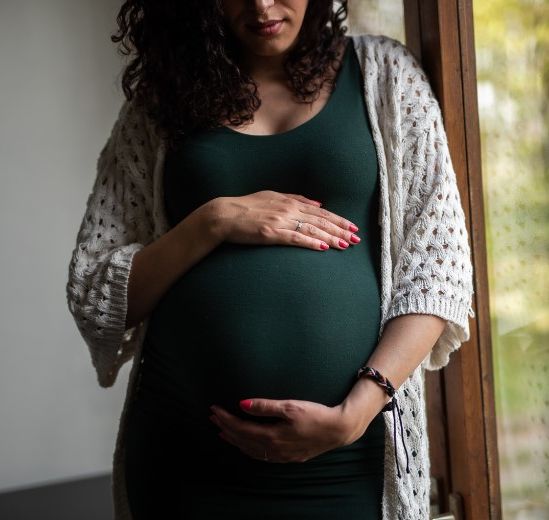
As of October 2022, current data indicate COVID-19 vaccination is safe and effective while trying to conceive, during pregnancy, and while breastfeeding, and the benefits of vaccination outweigh the serious potential risks of infection. Further, there is currently no evidence vaccination adversely impacts male or female fertility and published preliminary data indicate there are no strong links to menstruation disturbances (although evidence does indicate some women may experience a temporary change in their cycle).
Side effects of COVID-19 vaccination while pregnant and breastfeeding are similar to the general population and adverse pregnancy outcomes (miscarriage, birth defects, preterm delivery, etc.) are occurring at the same rate or below the rates of these same events in controls (unvaccinated pregnant women).
However, COVID-19 infection can cause adverse outcomes in pregnancy and numerous international obstetric organizations recommend vaccination during pregnancy, which can also pass antibodies to the fetus for possible protection after delivery.
Pregnant women should have an open discussion with their health care provider regarding any concerns they may have regarding COVID-19 vaccination.
For detailed information related to COVID-19 infection during pregnancy, click here and visit the U.S. Centers for Disease Control website for additional information.
Latest Updates
The dates below reflect the date of the publication, not the date of page entry.
October 19, 2022: New data was released from the CDC's Vaccine Safety Datalink and v-safe COVID-19 Vaccine Pregnancy Registry. There were 112,718 unique pregnancies between 6 to 19 weeks' gestation in 8 different surveillance periods (28-day windows) from November 2021 to June 2022. Of these, 10,485 received at least one booster dose after their initial primary series (Janssen/J&J dose and/or mRNA COVID-19 vaccines):
Based on adjusted odds ratios (measure of association) for primary and secondary analyses (which included)...
3rd mRNA COVID-19 vaccine in 42-day surveillance window
Any COVID-19 vaccine booster in 28-day window
Any COVID-19 vaccine booster in 42-day window
...COVID-19 booster vaccination in early pregnancy was not associated with an increased risk of pregnancy loss (before 20 weeks).
October 3, 2022: Nine observational studies involving 81,349 vaccinated (mean age, 32-35 years) and 255,346 unvaccinated pregnant women (mean age, 29.5-33 years) were included. COVID-19 vaccination during pregnancy was not associated with an increase in the risk of peripartum outcomes, but was associated with a decreased risk of NICU admission, fetal death, and maternal COVID-19 infection.
September 19, 2022: Researchers examined decidual biopsies (maternal part of the placenta) obtained at delivery from women who had COVID-19 in the first trimester (n = 8), were fully vaccinated against COVID-19 during pregnancy (n = 17), or were neither infected nor vaccinated during pregnancy (n = 9). Vaccination was not associated with decidual inflammation, supporting the safety of COVID-19 vaccination during pregnancy.
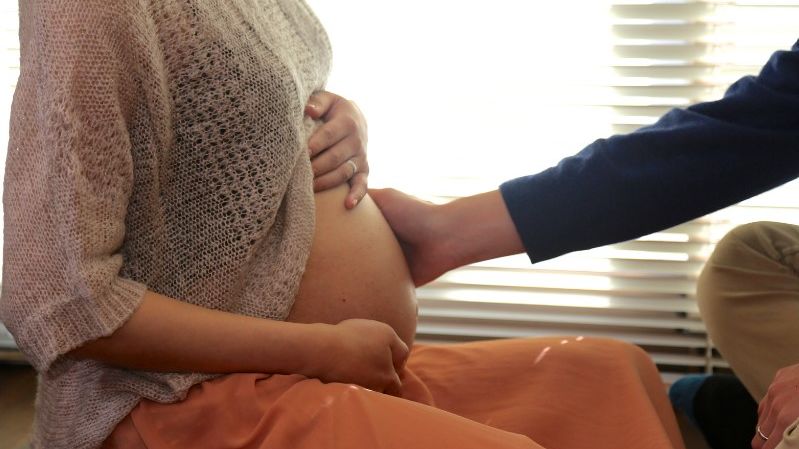
September 12, 2022: Out of 1,406 studies screened, 29 were included in this systematic review. These studies, conducted in Israel (34.5 %), the United States (24.1 %), Russia (20.7 %), China (10.3 %), Italy (3.5 %), North America (3.5%) and Turkey (3.5 %), found there was no scientific proof of any association between COVID-19 vaccines and fertility impairment in men or women.
September 11, 2022: A retrospective observational study was conducted using the data from the nationwide COVID-19 registry in Japan. During the study period, 310 symptomatic COVID-19 cases of pregnant women were identified; 111 and 199 patients were hospitalized during the Delta and Omicron periods, respectively. COVID-19 vaccination was still effective in preventing severe COVID-19 throughout the Delta and Omicron periods.
September 9, 2022: 256 pregnant women and 135 infants were enrolled; 148 maternal and 122 neonatal specimens were collected at delivery/birth; 45 maternal and 48 infant specimens were collected at 6 months. Vaccination in pregnancy post-COVID-19 recovery is a strategy for boosting antibodies in mother-infant pairs.
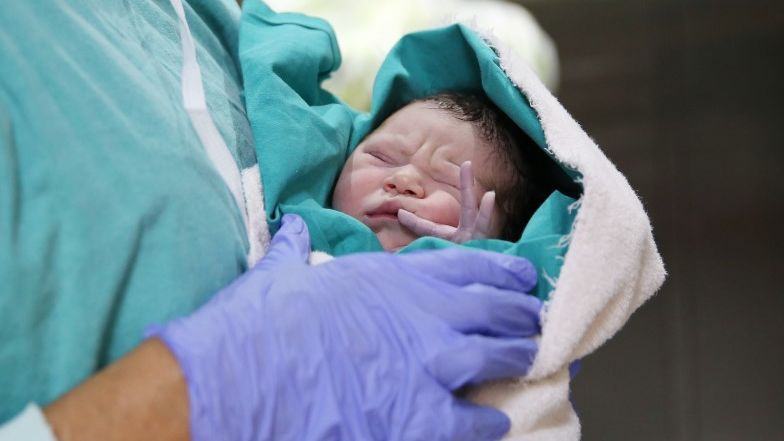
Key Findings
There is currently no evidence that COVID-19 vaccination has any adverse impact on female or male fertility. There is also no evidence vaccination adversely impacts pregnancy outcomes or causes adverse effects while breastfeeding (to include in breastfed infants/children).
Pregnant and breastfeeding women may choose to be vaccinated and/or boosted when eligible and should have a risks and benefits discussion with their health care provider.
Side effects of these vaccines during pregnancy are similar to those expected among the non-pregnant population. Side effects are generally short-lived; no adverse effects to fetuses have been identified.
Recent reports show that individuals who received mRNA COVID-19 vaccines during pregnancy and/or while breastfeeding have passed antibodies to their fetuses. These antibodies could help protect infants/children, but more information is necessary to determine effectiveness of these antibodies and how long they may last.
There is currently no evidence or mechanism of action in which vaccinated individuals "shed" and/or could cause infertility in other individuals by simply being around them. There is no scientific basis for this as the COVID-19 mRNA vaccines do not replicate and they are not live-attenuated (not a live virus).

Background
There are currently three COVID-19 vaccines authorized for use in the U.S.: Two are mRNA vaccines, Pfizer-BioNTech (Comirnaty) and Moderna (SpikeVax), and one is an adenoviral-vector vaccine (Janssen) of Johnson & Johnson. Pfizer and Moderna vaccines have been given full approval in the United States by the FDA (previously under Emergency Use Authorization).
Menstruation and Fertility
Menstruation
Numerous international studies on the effect of COVID-19 vaccination on menstruation are underway, largely due to the significant number of anecdotal reports of menstrual changes following vaccination in country surveillance systems (VAERS, Yellow Card).
As of September 28, 2022, the UK's MHRA has reported that "a total of 51,500 suspected reactions relating to a variety of menstrual disorders have been reported after administration of COVID-19 vaccines including heavier than usual periods, delayed periods and unexpected vaginal bleeding...This is following approximately 75.2 million monovalent COVID-19 vaccine doses...The number of reports of menstrual disorders and vaginal bleeding is low in relation to both the number of people who have received COVID-19 vaccines to date and how common menstrual disorders are generally...The menstrual changes reported are mostly transient in nature...changes to the menstrual cycle have also been reported following infection with COVID-19 and in people affected by long-COVID. "
A study published in February 2022 investigated a possible association between COVID-19 vaccination and menstrual cycle changes. In this Internet-based survey, 42% of women with regular menstrual cycles bled more heavily than usual while 44% reported no change after being vaccinated.
A study published in January 2022 included 3,959 women (vaccinated 2,403; unvaccinated 1,556) who reported 23,754 cycles. Most of the vaccinated cohort received the Pfizer-BioNTech vaccine (55%) (Moderna 35%, Johnson & Johnson/Janssen 7%). The change in cycle length was less than 1 day. A subset of women who received both vaccine doses in a single cycle had, on average, an adjusted 2-day increase in their vaccination cycle length. Although approximately 10% of these women experienced a notable change in cycle length of 8 days or more, this change attenuated quickly within two post-vaccine cycles (before returning to normal).
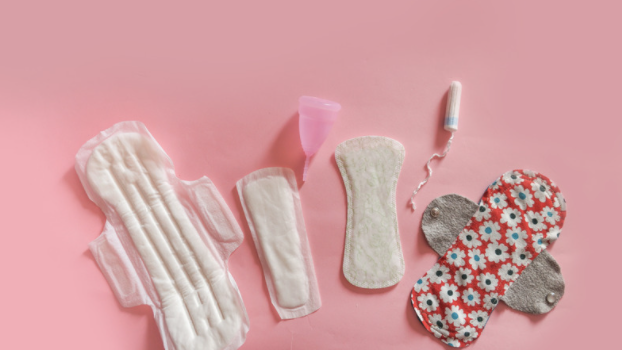
A pre-print published in November 2021 retrospectively recruited 1273 people who had a record of their menstrual cycle and vaccination dates and used their reports to explore hypotheses about how COVID-19 vaccination and menstrual changes could be linked. Regarding this specific dataset, researchers were unable to detect strong signals to support the idea that COVID-19 vaccination is linked to menstrual changes. However, larger, prospectively recruited studies may be able to find associations that this study was not powered to detect.
A separate pre-print published in November 2021 determined that 20% of 4989 pre-menopausal vaccinated individuals in the UK experienced some type of menstrual disturbance. Oestradiol-containing contraceptives was found to be a protective factor against adverse changes. Diverse experiences were reported, from a lack of menstrual bleeding to heavy menstrual bleeding.
Fertility
There is currently no evidence that COVID-19 vaccination has any adverse impact on female or male fertility.
A review of 29 studies published in September 2022 from at least six different countries found there was no scientific proof of any association between COVID-19 vaccines and fertility impairment in men or women.
A study published in February 2022 examined the associations of COVID-19 vaccination and COVID-19 infection with fertility among couples trying to conceive (without fertility treatment). The study enrolled 2,126 self-identified females and their male partners. Male COVID-19 infection was associated with a temporary reduction in the ability to conceive per cycle. COVID-19 vaccination did not impair fertility in either partner.
A study published in January 2022 assessed the fertility rates among 222 vaccinated patients and 983 unvaccinated patients who underwent controlled ovarian hyperstimulation cycles between February and September 2021. The authors concluded there was no association between COVID-19 vaccination and fertilization rate, ongoing pregnancy, biochemical pregnancy loss, and clinical pregnancy loss.
A study published in October 2021 assessed there was no danger of female infertility due to the induction of syncytin-1 cross-reacting antibodies related to COVID-19 vaccination. This study, along with two others (Lu-Culligan et al. 2022; Mattar et al. 2021), disproves a common social media myth that COVID-19 vaccination induces antibodies that attack the placenta (more below, under "Pregnancy").
A study published in October 2021 analyzed pregnancies that occurred in four ongoing phase 1, phase 2, and phase 3 clinical trials of the AstraZeneca COVID-19 vaccine in three countries. Any pregnancies that occurred after vaccination were recorded and followed up until 3 months after birth. "We found no evidence of an association between reduced fertility and vaccination with [AZD1222]...Furthermore, compared with women who received the control vaccine, there was no increased risk of miscarriage and no instances of stillbirth in women vaccinated before pregnancy in global clinical trials of [AZD1222]."

A study published in August 2021 took serum and follicular fluid samples for analysis (after vaccination), as well as estrogen, progesterone and HSPG2 concentration, and the number and maturity of aspirated oocytes and previous estrogen and progesterone measurements. No differences were detected in any of the surrogate ovarian follicle quality reporting parameters.
A study published in June 2021 noted that seropositivity to the COVID-19 spike protein, whether from vaccination or infection, does not prevent embryo implantation or early pregnancy development.
A study published in May 2021 assessed thirty-six couples who resumed IVF treatment 7–85 days after receiving an mRNA COVID-19 vaccine. No in-between cycles differences were observed in ovarian stimulation and embryological variables before and after receiving mRNA COVID-19 vaccination. mRNA COVID-19 vaccine did not affect patients’ performance or ovarian reserve in their immediate subsequent IVF cycle.
A separate study published in May 2021 identified no differences between the Intracytoplasmic Sperm Injection (ICSI) cycles that each patient underwent before and after vaccination. All the ICSI outcomes including the number of oocytes retrieved, the number of matured oocytes and the percentage of fertilized oocytes were similar in the pre- and post-vaccination groups. Moreover, the authors continued follow up for a few more days and assessed the quantity and quality of cleavage embryos and found no changes. Lastly, a subgroup from the sample showed that the pregnancy rate was also similar in the pre- and post-vaccination groups.
Data from the original clinical trials of all four major vaccines (Pfizer-BioNTech, Moderna, Janssen, and AstraZeneca) did not identify any fertility concerns in developmental and reproductive toxicity studies nor were there any concerns in clinical trial participants who became pregnant after vaccination (compared to controls).
Regarding male fertility, one study assessed sperm parameters before and after two doses of a COVID-19 mRNA vaccine; there were no significant decreases in any sperm parameter among this small cohort of healthy men.
A separate study also evaluated the impact of the Pfizer vaccine on sperm parameters and determined this vaccine appeared to have no impact on sperm parameters. The authors noted that "given that SARS-CoV-2 infection may impair male fertility, couples desiring to conceive should vaccinate, as vaccination does not affect sperm, whereas SARS-CoV-2 infection does impair sperm parameters."

Pregnancy
Vaccines are effective at preventing infection during pregnancy, as well as related complications. According to a Mayo Clinic study, vaccinated pregnant patients were less likely to experience COVID-19 infection compared to unvaccinated pregnant patients in their cohort. In an Israeli study published in July 2021, mRNA vaccines were shown to be 78% effective at preventing infection in pregnancy (15,000+ participants). An additional study published in September 2021 determined the Pfizer vaccine to be 96% effective after two doses for preventing any documented infection in pregnancy (20,000+ participants).
In a study published in September 2022, the authors compared the relative effectiveness of mRNA COVID-19 vaccines according to whether women received both while pregnant (n= 7,412), one dose while pregnant (n = 3,538), both while postpartum (n = 1,856), or both doses while neither pregnant nor postpartum (n = 6,687). The authors observed similar effectiveness of mRNA vaccines against COVID-19 infection among women regardless of pregnancy status at the time of vaccination. The findings were similar for BNT162b2 (Pfizer-BioNTech Comirnaty) and mRNA-1273 (Moderna Spikevax), and during Delta- and Omicron-dominant periods.
A review of ten observational studies (n=326,499) published in August 2022 suggested that COVID-19 vaccination prevents infection and related hospitalizations effectively. Furthermore, the vaccine was observed to be protective against neonatal COVID-19 ICU admissions.
An additional study published in March 2021 found that COVID-19 vaccination may offer protection against maternal ICU admission, mechanical ventilation or ECMO, maternal death, and vertical transmission; vaccination may also help reduce preterm birth, cesarean section, stillbirth, mother-infant separation at birth, and possible interruption of breastfeeding (due to infection).
Vaccination during pregnancy also offers protection against COVID-19 variants, including Omicron. A study published in January 2022 found that the initial two dose series of mRNA vaccination during pregnancy remained effective against severe infection from the Omicron variant (although neutralizing capability was decreased). A separate study published in January 2022 found that an mRNA two dose series in pregnant women was effective against the Delta variant.
In a study published in September 2022 using data from the nationwide COVID-19 registry in Japan, 310 symptomatic COVID-19 cases of pregnant women were identified; 111 and 199 patients were hospitalized during the Delta and Omicron periods, respectively. COVID-19 vaccination was still effective in preventing severe COVID-19 throughout the Delta and Omicron periods.
In a study published in January 2022, the authors observed that COVID-19 vaccination (two dose series) increased the magnitude of the antibody response to wildtype (D614), Beta, Delta, and Omicron variants in all populations; however, the Omicron variant was the most resistant to neutralization. Further, vaccinated pregnant women appeared to have less of a response than non-pregnant individuals, illustrating the importance of a booster vaccination in pregnant women.
In a study published in May 2021, vaccinated pregnant women developed cross-reactive immune responses against COVID-19 variants of concern. Further, while pregnant women admitted to the hospital in the UK during the Delta period had an increased risk of pneumonia, no fully vaccinated pregnant patients were admitted between February 1, 2021 and July 11, 2021.
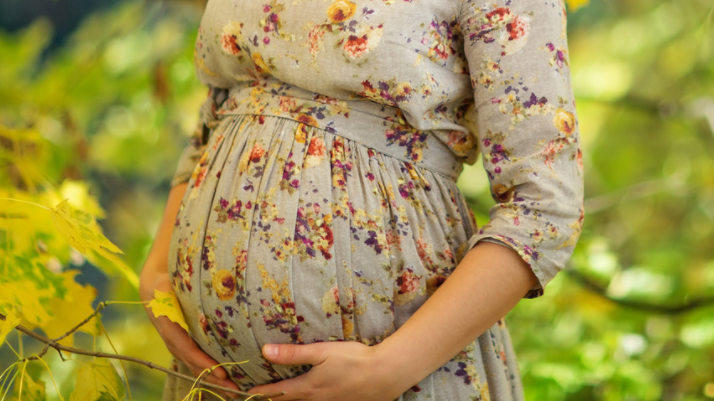
To date, vaccination in pregnancy is not associated with adverse maternal or fetal outcomes, including in early pregnancy. Rates of adverse events such as miscarriage, preterm birth, stillbirth, birth defects, gestational diabetes, preeclampsia/gestational hypertension, eclampsia, intrauterine growth restriction, and neonatal deaths are less than or within expected background rates for the same events in non-vaccinated pregnant women.
UK reporting on vaccine safety from Yellow Card data published in April 2022 indicated pregnant women have reported similar suspected reactions to the vaccines as people who are not pregnant. Reports of miscarriage and stillbirth are also low in comparison to how commonly these events occurred in the UK outside of the pandemic. A few reports of commonly occurring birth defects and obstetric events have also been received. However, there is no pattern from the reports to suggest that any of the COVID-19 vaccines used in the UK, or any reactions to these vaccines, increase the risk of miscarriage, stillbirths, congenital anomalies or birth complications.
A study published in April 2022 found that COVID- mRNA vaccination was not associated with an increased risk of structural birth defects. Of 3156 patients, 2622 (83.1%) received at least 1 vaccine dose and 1149 (43.8%) were vaccinated prior to 14 weeks of pregnancy. An anomaly was identified in 27 of 534 unvaccinated people (5.1%) and 109 of 2622 (4.1%) people who received at least 1 dose of vaccine. Based on percentages, as well as the known background rate for birth defects, vaccination prior to 14 weeks of pregnancy was not associated with presence of a structural birth defect identified on ultrasonography.
A study published in February 2022 assessed 24,288 eligible newborns, of whom 16,697 were exposed to COVID-19 mRNA vaccination during pregnancy (including 2,134 in the first trimester). The authors found no evident differences between newborns of women who received Pfizer mRNA vaccination during pregnancy vs. those of women who were not vaccinated (preterm birth, small for gestational age, birth defects, newborn hospitalization, infant mortality) and contributes to current evidence in establishing the safety of prenatal vaccine exposure to the newborns.
A study published in September 2021 found that of 105,446 unique pregnancies, there were 13,160 miscarriages and 92,286 ongoing pregnancies. For those who experienced miscarriage, the odds of COVID-19 vaccine exposure were not increased in the prior 28 days compared with those with ongoing pregnancies.
A pre-print published in August 2021 indicated that among 2,456 pregnant individuals who received an mRNA COVID-19 vaccine preconception or prior to 20 weeks’ gestation, the cumulative risk of pregnancy loss from 6–19 weeks’ gestation was 14.1%, similar to the background rate of pregnancy loss in an unvaccinated pregnant group (15% to 25%). These data suggest receipt of an mRNA COVID-19 vaccine preconception or during pregnancy is not associated with an increased risk of pregnancy loss.

Side effects are similar to those experienced by the non-pregnant population. Side effects of dose one or dose two (or a booster) of either mRNA vaccine are similar to the non-pregnant population and can include pain at the injection site, fatigue, headache, chills, nausea, muscle pain, and/or fever.
In a study published in August 2022, seventy-eight pregnant women who received the first and second doses of the vaccine were compared to eighty-four pregnant women who received the third dose of the vaccine. In terms of adverse events following vaccination, local rash/pain/swelling (93.6% vs. 72.6%) was significantly less common after the third vaccination compared to after the second vaccination.
According to the CDC, most systemic post-vaccination symptoms are mild to moderate in severity, occur within the first three days of vaccination, and resolve within 1–2 days of onset. These symptoms are more frequent and severe following the second dose.
Note: Fever itself can cause concerns in pregnancy; acetaminophen is recommended to decrease adverse-fever associated risks (talk with health care provider first).
A study published in August 2021 assessed short-term reactions among pregnant and lactating individuals in the first wave of the COVID-19 vaccine rollout and determined average maximum temperature was 100.6 °F/ 38.1 °C after dose 1 and 100.7 °F/38.2 °C after dose 2 (including 1051 pregnant individuals).
The fetus does not get exposed to the spike protein. Study that assessed antibodies in babies after the mother was COVID-19 vaccinated during pregnancy shows evidence the vaccine itself does not cross the placenta, only the mother's antibodies (IgG). If the vaccine had crossed the placenta, researchers should have seen IgM antibodies, but none of the infants from vaccinated mothers had this type of antibody.
Additionally, a separate laboratory study (pre-print) published on December 13, 2021 found no evidence of mRNA vaccine products in maternal blood, placenta tissue, or cord blood at delivery.
No placental antibody concerns have been identified. Among fifteen pregnant individuals who received at least one dose of Pfizer (including five breast-feeding women and two women vaccinated in early pregnancy), none had placental anti-syncytin-1 binding antibodies at either time-point following vaccination (May 2021). This means the vaccine did not cause antibodies toward a placental protein, adding further evidence to its safety in pregnancy. A second study was published in April 2022 with the same results; mRNA vaccination did not lead to an accumulation of spike protein in the placenta.
A separate study published in May 2022 also found no evidence of anti-syncytin-1 antibody induction following COVID-19 mRNA vaccination.
An earlier study published in October 2021 assessed there was no danger of female infertility due to the induction of syncytin-1 cross-reacting antibodies related to COVID-19 vaccination.
No placental harm has been identified. Study published in May 2021 found no evidence that mRNA COVID-19 vaccination during pregnancy harms the placenta (84 vaccinated individuals, 116 controls). "Placental examination [from pregnant individuals] with vaccination showed no increased incidence of decidual arteriopathy, fetal vascular malperfusion, low-grade chronic villitis, or chronic histiocytic intervillositis compared with those in the control group. Incidence of high-grade chronic villitis was higher in the control group than in the vaccinated group."
Vaccination produces COVID-19 antibody transfer to the fetus and likely protects the infant from COVID-19 in the first months of life. Several studies have detected antibodies in umbilical cord blood, amniotic fluid, and in newborns after maternal vaccination. Further, this antibody transfer is assessed to be greater than antibody transfer after COVID-19 infection in pregnancy:
A study published in February 2022 found the effectiveness of a two-dose mRNA COVID-19 vaccination series (primary series) during pregnancy was 61% effective against COVID-19 hospitalization in infants less than six months old.
A study published on December 22, 2021 assessed second trimester COVID-19 mRNA vaccination and antibody transfer to the fetus and infant. Newborn antibody levels "were approximately 2.6 times higher than maternal titers, representing 100% placental antibody transfer." No correlation was found between maternal and neonatal antibody titers and the presence of adverse effects after vaccination.
A study published in May 2021 found that mRNA-based COVID-19 vaccines in pregnant individuals lead to maternal antibody production as early as 5 days after the first vaccination dose, and passive immunity to the neonate as early as 16 days after the first vaccination dose.
A pre-print published in November 2021 quantified anti-Spike IgG in ninety-two (92) 2-month and 6-month-old infants whose mothers were vaccinated in pregnancy, and in twelve (12) 6-month-old infants after maternal natural infection with COVID-19. In the vaccinated group, 94% (58/62) of infants had detectable anti-S IgG at 2 months, and 60% (18/30) had detectable antibody at 6 months. In contrast, 8% (1/12) of infants born to women infected with COVID-19 in pregnancy had detectable anti-S IgG at the 6-month timepoint.
Vaccination during pregnancy plus initiation of breastfeeding (prenatal antibodies + breastfeeding antibodies) is likely the most effective strategy, but both methods alone may offer an infant protection. The exact strength and length of that protection requires more research.

There is limited information on the most "ideal" timing for vaccination in pregnancy, but it is recommended pregnant individuals get vaccinated when they can. However, several studies indicate that vaccination late in the second trimester or early in the third trimester could provide more time for antibody transfer (vs. vaccination too close to delivery).
Placental transfer (during pregnancy) likely offers more protection (IgG; antibodies “more durable”) compared to vaccination while breastfeeding (IgA, some IgG; see box) but each method protects differently.
Placental transfer offers systemic protection (gets into blood; antibodies may last as long as 6 to 12 months); breastmilk transfer offers mucosal protection, but is not long lasting; however, being breastfed every few hours would offer some level of sustained [IgA, IgG] protection.
Breastfeeding
To date, numerous have found robust secretion of COVID-19 antibodies in breast milk beginning days to weeks after vaccination. One study found these antibodies remained up to 6 weeks after vaccination and a second study determined they were present for up to 80 days after vaccination. Antibodies found in breast milk showed strong neutralizing effects, suggesting a potential protective effect against infection in the infant (but more research is necessary for the latter).
In a study published in August 2022, researchers compared antibody levels in women with confirmed COVID-19 infection during pregnancy (n = 16) to women with prenatal COVID-19 vaccination (n = 5). Among the recovered women, n = 7 (44%) had been vaccinated during the lactation period as well. Notably, the antibody level in breast milk post COVID-19 infection sharply increased following a single dose of vaccine. Breast milk antibodies in all groups showed neutralization capacities against an early pandemic COVID-19 isolate (HH-1) and moreover, also against the Omicron variant, although with lower antibody titer. The authors noted, "our findings highlight the importance of booster vaccinations especially after SARS-CoV-2 infection in pregnancy in order to optimize protection in mother and newborn."
A separate study indicated that significantly elevated levels of specific IgG and IgA antibodies in human milk started approximately 7 days after the initial vaccine dose.
In a prospective cohort study of 84 breastfeeding women immunized with 2 doses of an mRNA vaccine, 97% of samples (n=504) were positive for COVID-19 antibodies at weeks 5 and 6 post-vaccination.
A study published in August 2021 assessed antibodies in breastmilk after COVID-19 vaccination, include those lactating for two years or more. The study found that all vaccinated study participants (n=94) who were breastfeeding had IgG antibodies and 89% of them had IgA in their milk. Further, IgA and IgG antibody concentrations in the milk of mothers who were breastfeeding for 24 months or longer were significantly higher than in mothers with breastfeeding periods less than 23 months.
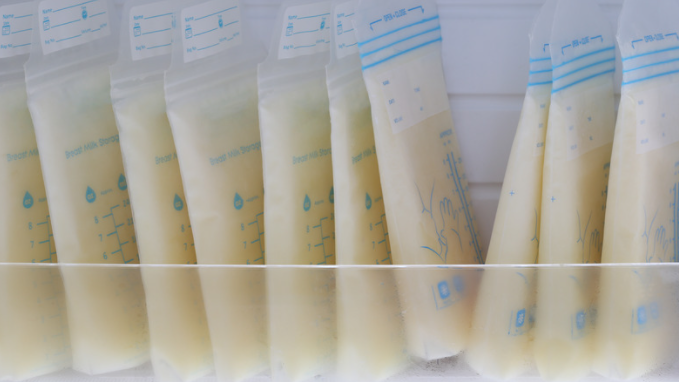
However, it is unclear if maternally transferred antibodies via breastmilk will offer an infant protection against COVID-19, but positive findings are accumulating.
IgA antibodies produced in breastmilk after vaccination appear to resist an infant’s gastric phase of digestion but are degraded during the intestinal phase (although may still have a protective effect); IgG antibodies may be prone to degradation in both phases of digestion. More research is necessary to determine if the antibodies produced in breastmilk after vaccination are effective at preventing infant infection, and if they are, for how long.
Although more data are necessary, based on what researchers know of other vaccines, breast milk IgA and/or IgG could prevent infection and transmission of infection at the mucosal surface (mouth, throat) for as long as breastfeeding continues. A study published in November 2021 found IgG in the oral mucosa (mouth) of 3 of 5 breastfed infants after their mothers were vaccinated while breastfeeding (IgG obtained from breastfeeding does not enter an infant's bloodstream for long-term protection).
A study published in August 2021 assessed breastmilk samples obtained from 61 postpartum women vaccinated with an mRNA vaccine. All breastmilk samples were positive for IgG antibodies against COVID-19, and 18 of 47 milk samples (38.3%) were found to neutralize the virus in a laboratory setting. A second study published in October 2021 indicated that neutralization capacity for milk against the COVID-19 spike and RBD proteins was observed in all samples (from 10 women).
A study published in May 2022 found that although antibodies in breastmilk decline after simulated infant digestion (in a lab), levels remained high enough for a potential protective effect for the infant.

Vaccine components have only been minimally detected in breast milk, or not at all: A study published in August 2021 of breast milk samples of recently vaccinated lactating women found that 4 of 40 samples had "negligible" but detectable levels of vaccine mRNA (36 of the 40 did not have detectable levels). "The highest concentration of mRNA in the tested samples was 2 ng/ml. This would translate into a hypothetical 0.667% of the original vaccine dose being transferred in 100 ml of human milk given to the infant post-vaccination, in the worst-case scenario."
In contrast, a separate but smaller study published in July 2021 was unable to detect vaccine mRNA in breast milk 4 to 48 hours after vaccination. None of the samples showed detectable levels of vaccine mRNA in any component of the milk.
Regarding the possibility of undetectable components in breast milk, the study authors from above wrote that "the biological relevance of this potential transfer is likely minimal for COVID-19 vaccine mRNA or spike protein...[and] vaccine mRNA particles would not be expected to cause negative effects...minute quantities of vaccine-related material below the limits of detection...are unlikely to have significant negative impacts on infant health."
A study published in November 2021 determined the tiny amount of polyethylene glycol-2000 (PEG) in the Pfizer-BioNTech vaccine is not found in breast milk or absorbed orally. Therefore, "breastmilk PEG exposure from maternal vaccination is not a concern."
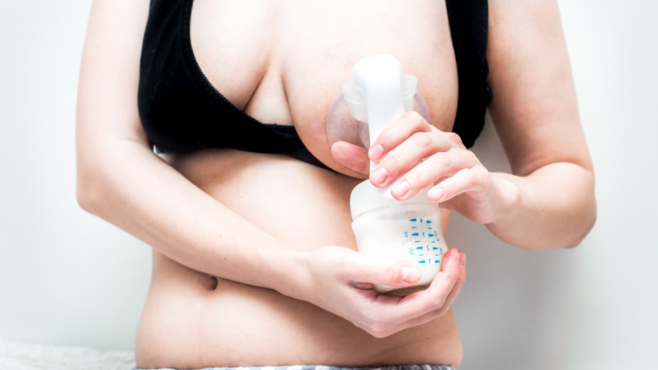
Milk Supply: At least three studies and one analytic report have indicated a small amount of lactating women (less than 10-20% of participants) may experience temporary decreases in milk supply after vaccination before returning to normal with 24 to 72 hours.
Infant side effects are rare and may be coincidental. According to UK Yellow card data published in February 2022, there is no current evidence that COVID-19 vaccination while breastfeeding causes any harm to breastfed children or affects the ability to breastfeed. Of approximately 4,000 Yellow card reports, most women "reported only suspected reactions in themselves which were similar to reports for the general population, with no effects reported on their milk supply or in their breastfed children."
A study published in September 2021 of 4,455 breastfeeding mothers (online survey) who received an mRNA vaccine indicated that 7.1% of mothers reported an adverse effect in their infant. The most common symptoms were increased sleepiness (3%) and increased fussiness (3%).
A study published in August 2021 of 180 breastfeeding women who received an mRNA vaccination documented the following side effects in their infants (as reported by their mothers): irritability (10.3% and 10.4% for Pfizer and Moderna, respectively) and poor sleep (7.8% and 8.3% for Pfizer and Moderna, respectively). However, the authors noted it is not known if these side effects were directly caused by the vaccine.
In a study published in April 2021 of 84 breastfeeding women immunized with the Pfizer vaccine, 42% were exclusively breastfeeding. No infants experienced a serious adverse reaction. The authors reported that while four infants developed a fever, these infants had symptoms of a general respiratory infection (not COVID-related).
Several other studies indicated that little to no breastfed infants in their cohorts had any adverse reactions or adverse events reported after their mothers were vaccinated (including diarrhea, rash, cough, fever).

Boosters
Based on all current available data, researchers and scientists do not currently assess a third booster shot of any authorized vaccine will differ in safety from original doses in individuals trying to conceive, pregnant, or are currently breastfeeding.
Pregnancy or lactation-specific booster data (currently limited):
October 19, 2022: New data released from the CDC's Vaccine Safety Datalink and v-safe COVID-19 Vaccine Pregnancy Registry. There were 112,718 unique pregnancies between 6 to 19 weeks' gestation in 8 different surveillance periods (28-day windows) from November 2021 to June 2022. Of these, 10,485 received at least one booster dose after their initial primary series (Janssen/J&J dose and/or mRNA COVID-19 vaccines):
Based on adjusted odds ratios (measure of association) for primary and secondary analyses (which included)...
3rd mRNA COVID-19 vaccine in 42-day surveillance window
Any COVID-19 vaccine booster in 28-day window
Any COVID-19 vaccine booster in 42-day window
...COVID-19 booster vaccination in early pregnancy was not associated with an increased risk of pregnancy loss (before 20 weeks).
September 8, 2022: This cohort study of 17,014 pregnant women found that most (82.8%) reported a local reaction and that 67.9% reported at least 1 systemic symptom after a COVID-19 vaccine booster or third dose. Most pregnant (97.6%) and lactating (96.0%) women reported no obstetric or lactation concerns after vaccination. This study suggests that the COVID-19 vaccine booster or third dose was well tolerated among pregnant and lactating women.
September 1, 2022: In this study, maternal mRNA COVID-19 vaccination, including a booster dose, was associated with protection against medically attended COVID-19. Vaccine effectiveness estimates were higher against COVID-19-associated hospitalization than Emergency Department/Urgent Care visits and lower against the Omicron variant than the Delta variant (but still effective).
August 2022: Seventy-eight pregnant women who received the first and second doses of the vaccine were compared to eighty-four pregnant women who received the third dose of the vaccine. COVID-19 IgG (antibody) serum levels 28-32 days after the vaccination were significantly higher after the third vaccination compared to the second vaccination. The third (booster) dose is effective in generating a stronger humoral immune response in pregnant women compared with the second dose.
May 19, 2022 (pre-print): Data suggest that receipt of a booster dose during pregnancy induces a robust Spike-specific immune response, including against Omicron (protective). If boosting occurs in the third trimester, higher Spike-specific cord antibody levels are achieved with greater time elapsed between receipt of the booster and delivery.
April 7, 2022: Retrospective cohort study of pregnant individuals who delivered between July and October 2021 at a large tertiary medical center:
Compared individuals who received an mRNA booster vaccine during pregnancy to those who were not vaccinated and to those who had only received two mRNA vaccines (no booster)
294 pregnant individuals received three vaccines; 2,845 received two vaccines; 3,368 were unvaccinated
Overall conclusion: The booster dose of the COVID-19 vaccine during pregnancy was NOT associated with adverse obstetric outcomes compared to unvaccinated or twice-vaccinated pregnant individuals.
Lower rates of fetal death, preterm birth, small for gestational age, and hypertensive disorders (high blood pressure) were noted among the booster group (see chart, next slide).
However, higher rates of postpartum hemorrhage (PPH) were observed. Of note, the authors indicated that those who received a booster vaccine were more likely to be older, have a higher BMI, and be smokers (the latter associated with PPH); this finding has not been found in prior studies. More research is needed.
January 13, 2022: Study authors observed that COVID-19 vaccination (two dose series) increased the magnitude of the antibody response to wildtype (D614), Beta, Delta, and Omicron variants in all populations; however, the Omicron variant was the most resistant to neutralization. Further, vaccinated pregnant women appeared to have less of a response than non-pregnant individuals, illustrating the importance of a booster vaccination in pregnant women.
December 28, 2021: An analysis of maternal and umbilical cord antibody levels at delivery, which included 20 pregnant women who received a vaccine booster, found that a booster dose in the third trimester was associated with maternal anti-spike IgG levels greater than third-trimester vaccination in women with or without a history of COVID-19 infection (booster provided higher antibody production than after two dose series).
December 5, 2021: Pre-print found that for lactating individuals, COVID-19 spike-specific T-cell (type of immune cell) receptors were more frequent in breastmilk compared to maternal blood and expanded in breastmilk following a third mRNA vaccine dose.
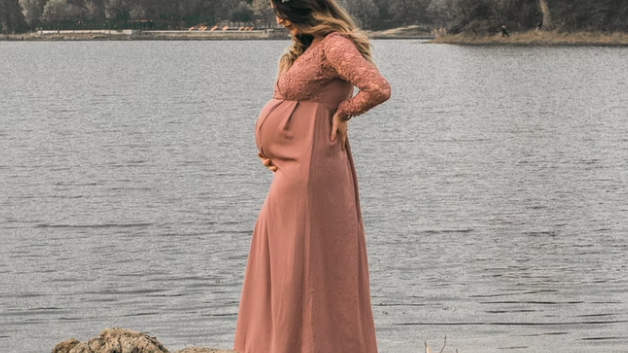
Breakthrough Infection
There is very limited information regarding breakthrough infections (infection after vaccination) and pregnancy. However, in the general population, breakthrough infection is possible after vaccination (highly dependent on variant), but vaccination remains effective against serious illness and hospitalization.
A study published on March 31, 2022 found that pregnancy was considered a risk factor for COVID-19 breakthrough infection. "Notably, pregnant individuals are 1.91 times as likely to have a breakthrough infection, individuals with a solid organ transplant are 1.83 times as likely, and individuals with an immune system deficiency are 1.63 times as likely...These findings support the CDC’s recommendation that patients with a high-risk comorbidity may need to use enhanced infection prevention control beyond vaccination to minimize the risk of a COVID-19 breakthrough infection."
A study published on March 1, 2022 found that fully vaccinated pregnant women infected with COVID-19 during the Omicron wave had milder illness and were less likely to require oxygen supplementation and intensive care compared with their unvaccinated counterparts.
A study published in August 2021 found that breakthrough infection was possible in vaccinated pregnant women. Although this was not the primary outcome measured in the study, the authors found 118 COVID-19 infections in their pregnant vaccinated group (compared with 202 in the unvaccinated group; same number of participants in both groups).
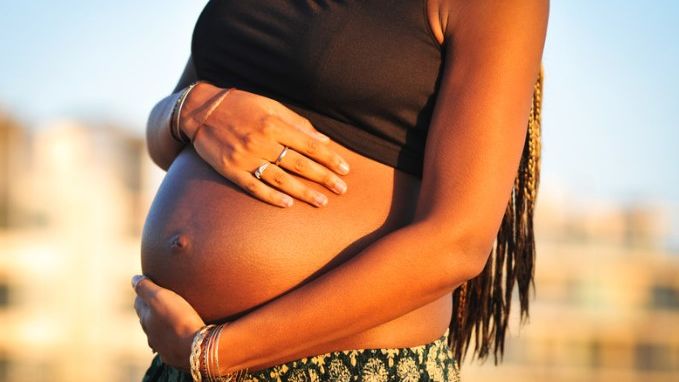
Long-Term Data
There are currently no data regarding long-term outcomes of infants whose mothers were vaccinated during pregnancy or while breastfeeding. However, researchers do have present data and decades of other research that indicate long-term unexpected adverse outcomes in infants are unlikely:
Currently, there are four large datasets from three countries that have not found higher rates of adverse birth outcomes after COVID-19 vaccination in pregnancy. Adverse outcomes detected are occurring at the same rate as unvaccinated pregnant women.
There is currently no evidence the vaccine itself (e.g. spike protein) crosses the placenta. IgM antibodies have not been detected in babies after maternal vaccination. IgM is made by the body when it is "infected"; it does not cross the placenta (see box, above). Therefore, if a newborn had IgM antibodies after maternal vaccination, that would indicate the vaccine itself crossed the placenta and "infected" the fetus for the fetus to have made its own IgM antibodies; this has not been detected after vaccination. Further, at least one laboratory study failed to find evidence of mRNVA vaccination products in maternal blood, placenta tissue, or cord blood at delivery.
Vaccine mRNA has not been detected in placenta or breastmilk (estimated half-life of 8 to 10 hours).
Lipid nanoparticles (LNP) are not expected to be a concern (prior drugs using LNPs were unable to cross placenta in animal studies).
Polyethylene glycol is not absorbed orally (no breastfeeding concerns).
There is no plausible mechanism for intact, complete, functional viral S proteins to be distributed into the milk.

Organizational Recommendations
The latest organizations recommendations regarding pregnancy and COVID-19 vaccination from:
U.S. Centers for Disease Control and Prevention
American College of Obstetricians and Gynecologists
Society for Maternal-Fetal Medicine
UK Royal College of Obstetricians and Gynaecologists
The Society of Obstetricians and Gynaecologists of Canada
The Royal Australian and New Zealand College of Obstetricians and Gynaecologists
CDC (updated December 6, 2021): The U.S. Centers for Disease Control and Prevention (CDC) formally announced new guidance to officially recommend COVID-19 vaccination for all people aged 5 years of age and older, including people who are pregnant, breastfeeding, trying to get pregnant now, or might become pregnant in the future. Booster doses were also approved and recommended for pregnant individuals and recently pregnant individuals (six weeks postpartum). CDC further added:
"If you got pregnant after receiving your first shot of a COVID-19 vaccine that requires two doses (i.e., Pfizer-BioNTech COVID-19 vaccine or Moderna COVID-19 vaccine), you should get your second shot to get as much protection as possible. If you experience fever following vaccination, you should take acetaminophen (Tylenol) because fever—for any reason—has been associated with adverse pregnancy outcomes."
"COVID-19 vaccines cannot cause COVID-19 infection in anyone, including the mother or the baby, and vaccines are effective at preventing COVID-19 in people who are breastfeeding. Recent reports have shown that breastfeeding people who have received mRNA COVID-19 vaccines have antibodies in their breastmilk, which could help protect their babies. More data are needed to determine what level of protection these antibodies may provide to the baby."

American College of Obstetricians and Gynecologists (ACOG):
February 8, 2022: ACOG recommends that all eligible persons aged 12 years and older, including pregnant and lactating individuals, receive a COVID-19 vaccine or vaccine series.
The mRNA COVID-19 vaccines are preferred over the J&J/Janssen COVID-19 vaccine for all vaccine-eligible individuals, including pregnant and lactating individuals, for primary series, primary additional doses (for immunocompromised persons), and booster vaccination.
COVID-19 vaccines may be administered simultaneously with other vaccines. This includes vaccines routinely administered during pregnancy, such as influenza and Tdap.
ACOG recommends that pregnant and recently pregnant people up to 6 weeks postpartum receive a booster dose of COVID-19 vaccine following the completion of their initial COVID-19 vaccine or vaccine series.
U.S. Society for Maternal-Fetal Medicine (SMFM):
December 20, 2021: "SMFM, the CDC, and other organizations representing maternal and public health professionals recommend that pregnant, postpartum, and lactating people and those considering pregnancy receive the COVID-19 vaccination. Vaccination is the best method to reduce maternal and fetal complications of SARS-CoV-2 infection. Counseling to support the recommendation for vaccination should include available data on vaccine efficacy, as well as data on vaccine safety during pregnancy and lactation."
"SMFM and ACOG recommend that pregnant people receive a COVID-19 booster shot at least 6 months after their primary series for mRNA-based vaccines (ie, Pfizer or Moderna) and at least 2 months after their primary vaccination for the Janssen vaccination. As with the primary series, the booster dose should be given at any stage during pregnancy and postpartum."
UK Royal College of Obstetricians and Gynaecologists (RCOG):
September 16, 2021: The UK Royal College of Obstetricians and Gynaecologists released a statement urging "all pregnant [individuals] eligible for the COVID-19 booster vaccine to take up the offer."
July 22, 2021: RCOG released the following statement: "Health chiefs are encouraging more pregnant women to come forward for their COVID-19 vaccine, as new data from Public Health England (PHE) show for the first time that 51,724 pregnant women in England have received at least one dose...On 16 April 2021, the Joint Committee on Vaccination and Immunisation (JCVI) advised that pregnant women should be offered the COVID-19 vaccine at the same time as the rest of the population, based on their age and clinical risk group."
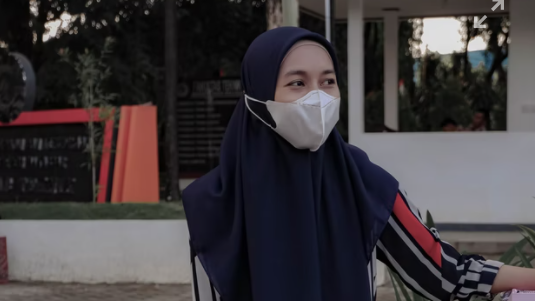
The Society of Obstetricians and Gynaecologists of Canada (SOGC): On November 15, 2021, SOGC revised and reaffirmed their original guidance from December 2020:
COVID-19 vaccination is recommended during pregnancy in any trimester and while breastfeeding
All available COVID-19 vaccines approved in Canada can be used during pregnancy and breastfeeding, but the SOGC recommends following provincial and territorial guidelines on type of vaccine to prioritize for pregnant and breastfeeding individuals.
Individuals should not be precluded from vaccination based on pregnancy status or breastfeeding.
Given that pregnant people are at increased risk of morbidity from COVID-19 infection, all pregnant persons should be prioritized to receive a COVID-19 vaccination.
The Royal Australian and New Zealand College of Obstetricians and Gynaecologists (RANZCOG) and the Australian College of Midwives (ACM) released the following statement on January 13, 2022:
ACM and RANZCOG "have reiterated the importance of COVID-19 vaccines. Pregnant women who have not yet had their first, second or booster dose of a COVID-19 vaccine are being urged to get their jab as soon as possible...mRNA vaccines for COVID-19 are recommended for all people trying to conceive (either spontaneously, or through IVF), pregnant, or breastfeeding. This advice is based on robust data supporting safety in these circumstances. Specifically:
There is no evidence of negative impact on fertility
There is no evidence of an increased risk of miscarriage, stillbirth, preterm birth or other adverse pregnancy outcomes
There is no evidence of negative impacts on the health of the breastfed infant
Conversely, infection with COVID-19 is associated with an increased risk of severe disease, hospitalisation, admission to intensive care, mechanical ventilation, and death, in pregnant women, and an increased risk of prematurity and stillbirth."
Registries
V-safe is a smartphone-based tool that uses text messaging and web surveys to provide personalized health check-ins after you receive a COVID-19 vaccine. Through v-safe, you can quickly tell CDC if you have any side effects after getting a COVID-19 vaccine. Depending on your answers to the web surveys, someone from CDC may call to check on you and get more information. V-safe will also remind you to get your second COVID-19 vaccine dose if you need one.
V-safe COVID-19 Vaccine Pregnancy Registry: The registry is collecting health information from people who received COVID-19 vaccination in the periconception period (within 30 days before last menstrual period) or during pregnancy. The information is critical to helping people and their healthcare providers make informed decisions about COVID-19 vaccination. Participation is voluntary, and participants may opt out at any time.
Vaccine Adverse Event Reporting System (VAERS): VAERS is a U.S. early warning system to detect possible safety problems in U.S.-licensed vaccines. VAERS is co-managed by the Centers for Disease Control and Prevention (CDC) and the U.S. Food and Drug Administration (FDA). VAERS accepts and analyzes reports of adverse events (possible side effects) after a person has received a vaccination. Anyone can report an adverse event to VAERS.
COVID-19 Vaccines International Pregnancy Exposure Registry: The C-VIPER is open to any woman who is 18 years of age or older, pregnant, and vaccinated against COVID-19 during pregnancy.

Action
Pregnant women or those trying to conceive should have an open discussion with their health care provider regarding any concerns they have regarding COVID-19 vaccination, to include possible adverse reactions and/or side effects. See the resources below for additional information.
Resources
Considerations for counselling pregnant persons regarding COVID-19 vaccination; pregnancy data on thirteen global COVID-19 vaccines (Dr. Liona Poon, academic specialist in Obstetrics and Maternal Fetal Medicine)
Explainer on COVID-19 vaccination, fertility, pregnancy and breastfeeding (Dr. Victoria Male, Lecturer in Reproductive Immunology at Imperial College London)
COVID-19 Vaccination of Pregnant or Lactating People (U.S. Centers for Disease Control and Prevention)
Provider Considerations for Engaging in COVID-19 Vaccine Counseling With Pregnant and Lactating Patients (Society for Maternal-Fetal Medicine)
How Do We Know the COVID-19 Vaccines Are Safe and Effective? One Expert Explains. (American College of Obstetricians and Gynecologists; December 2020)